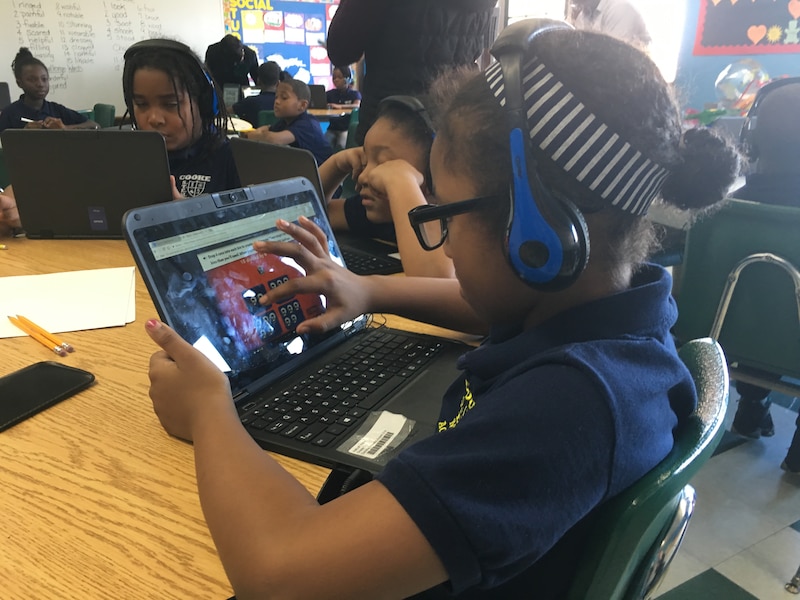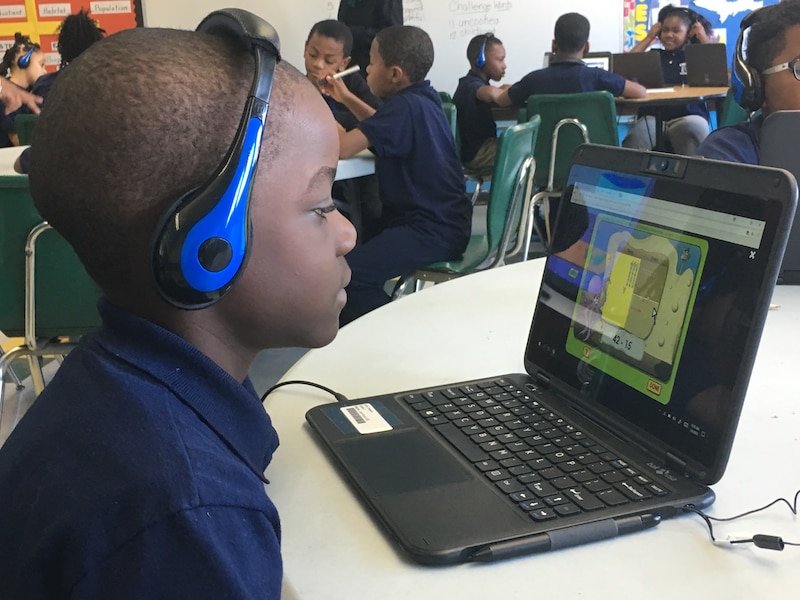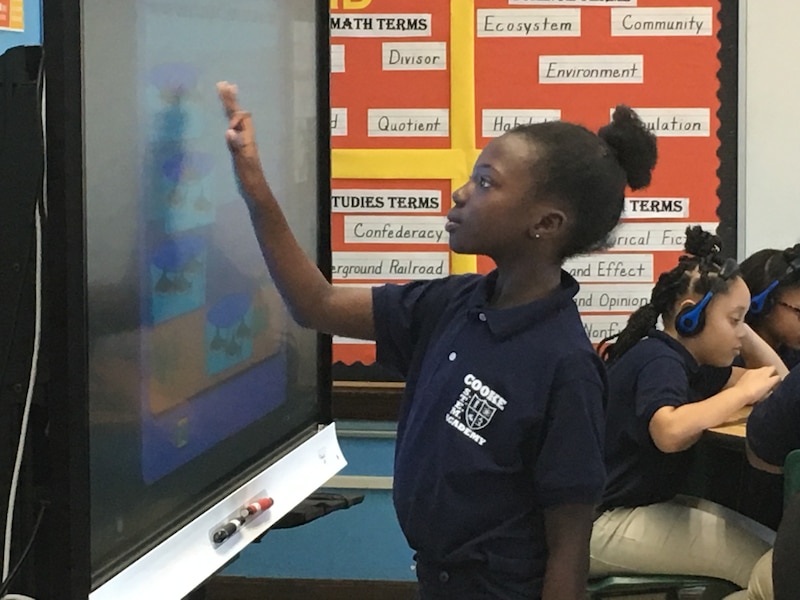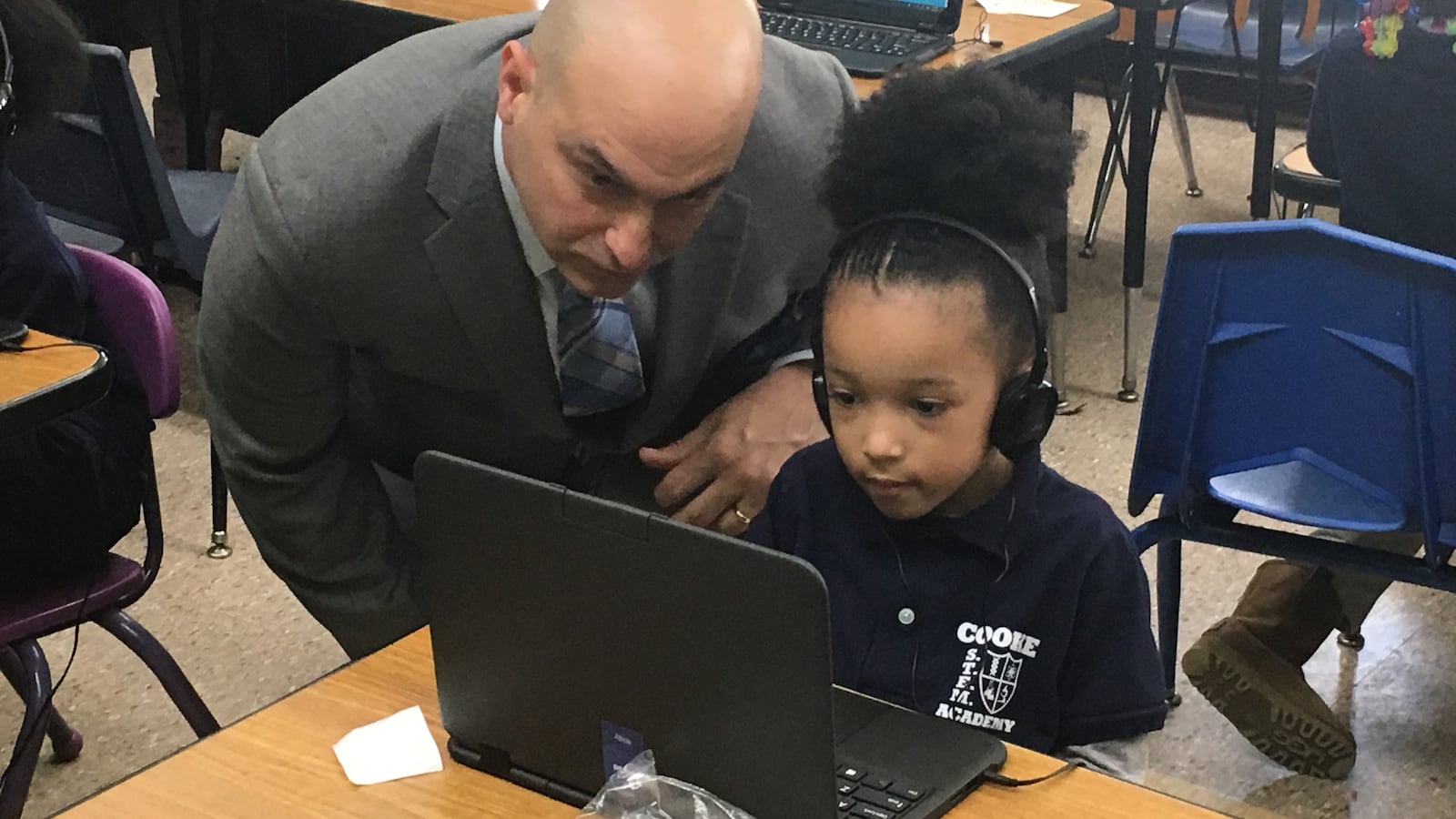A group of kindergarten students stood at the front of their class at Cooke STEM Academy Tuesday morning, using their fingers on an electronic whiteboard to drag together the words “block” and “clock.” Their teacher joined them at the screen, and the four yelled “Cookie Crunch!” before switching to another word game featuring Cookie Monster.
This classroom scene could come to every school in the Detroit district over the next five years — if Superintendent Nikolai Vitti can find the money to support it.
Vitti’s goal is to give every core teacher an electronic whiteboard and get a personal laptop in the hands of every student in his district by 2023 — a move that he says is sure to improve learning.
“This isn’t about replacing teachers, this is about supplementing the core curriculum,” Vitti said. “It is my opinion that all technology can do is enhance learning.”
For now, three schools — Cooke STEM Academy, Bagley Elementary School of Journalism and Technology, and Nolan Elementary-Middle School — have gotten the new technology in recent months thanks to roughly $500,000 in state and federal grants.
In the schools currently using the technology, teachers present a lesson, then students break into small groups to work independently with online tools, Vitti said. Those tools include programs such as Kahoot! and i-Ready, which provide interactive online lessons and quizzes. In some cases, students in the same class will work on different levels, while the teacher interacts with groups one at a time.

“It’s letting them work at their own pace,” said Dionne Garrett, a kindergarten teacher at Cooke STEM Academy.
The approach, which some call “personalized learning,” has fans in powerful philanthropist U.S. Education Secretary Betsy DeVos, even though there is little evidence to suggest that it boosts student learning. Research about giving students personal laptops is similarly mixed: One meta-analysis of 10 studies released last spring by researchers at Michigan State University and the University of California, Irvine pointed to a “significant” increase in English and math scores when school districts gave every student a laptop, though there were not significant improvements in reading.

Garrett said she is seeing promising signs in her classroom. In addition to making her workload lighter because computer programs prepare lessons and reports about student performance, she said, some students are tackling more complex work.
“It has made kids enjoy using technology more and … they’re able to cover more skills than we generally wouldn’t cover just yet,” Garrett said. “Some kids are doing measurement and geometry. … I think it’s putting them ahead.”
The district will need thousands of new computers to fulfill Vitti’s goal. The ratio of students to technology district wide before the new initiative was about six students to one computer, according to data released at the end of January.

But increasing access to computers is a pressing need if students are to be comfortable taking tests online. Michigan’s new M-STEP exam is designed to be taken online.
The district is also looking for ways to give students access to the online learning tools at home. Currently, the laptops can only be used in the classroom, but that could change in the future, Vitti said. He also said the district does not track whether families have internet access but would never make online lessons be mandatory to complete at home.

